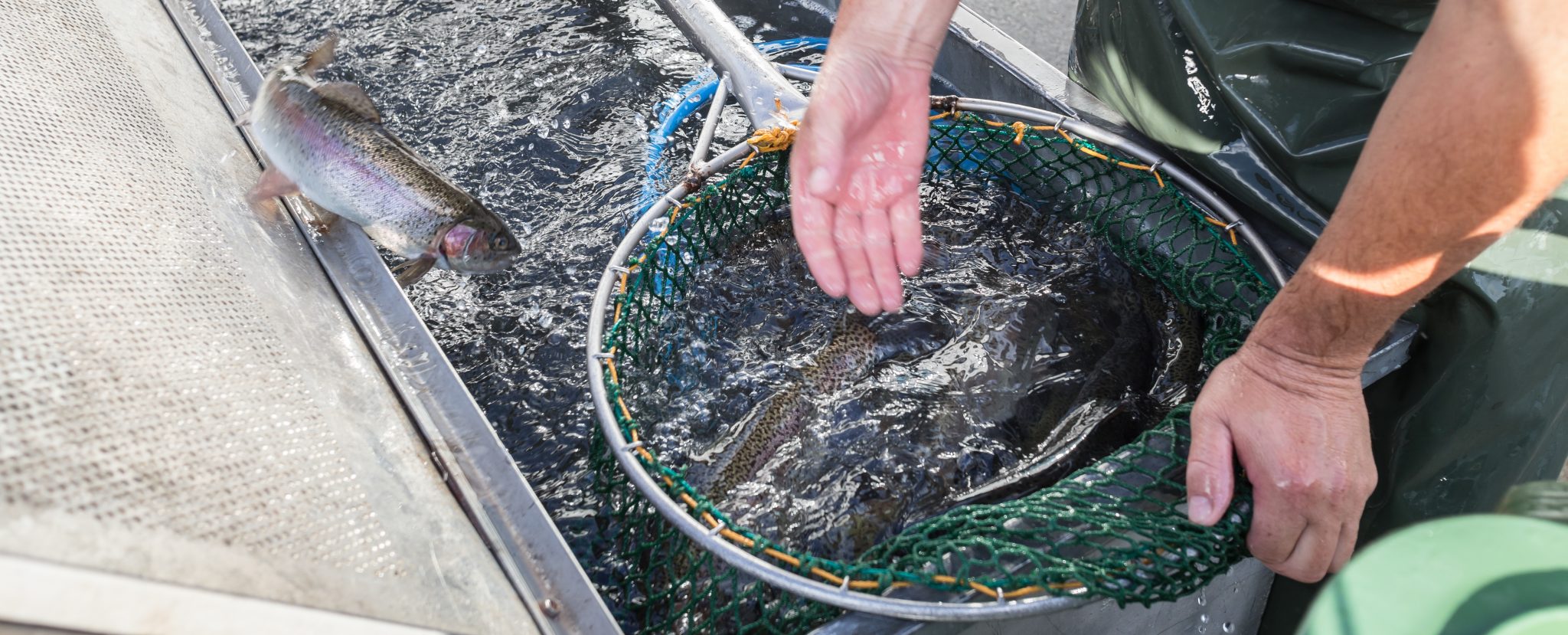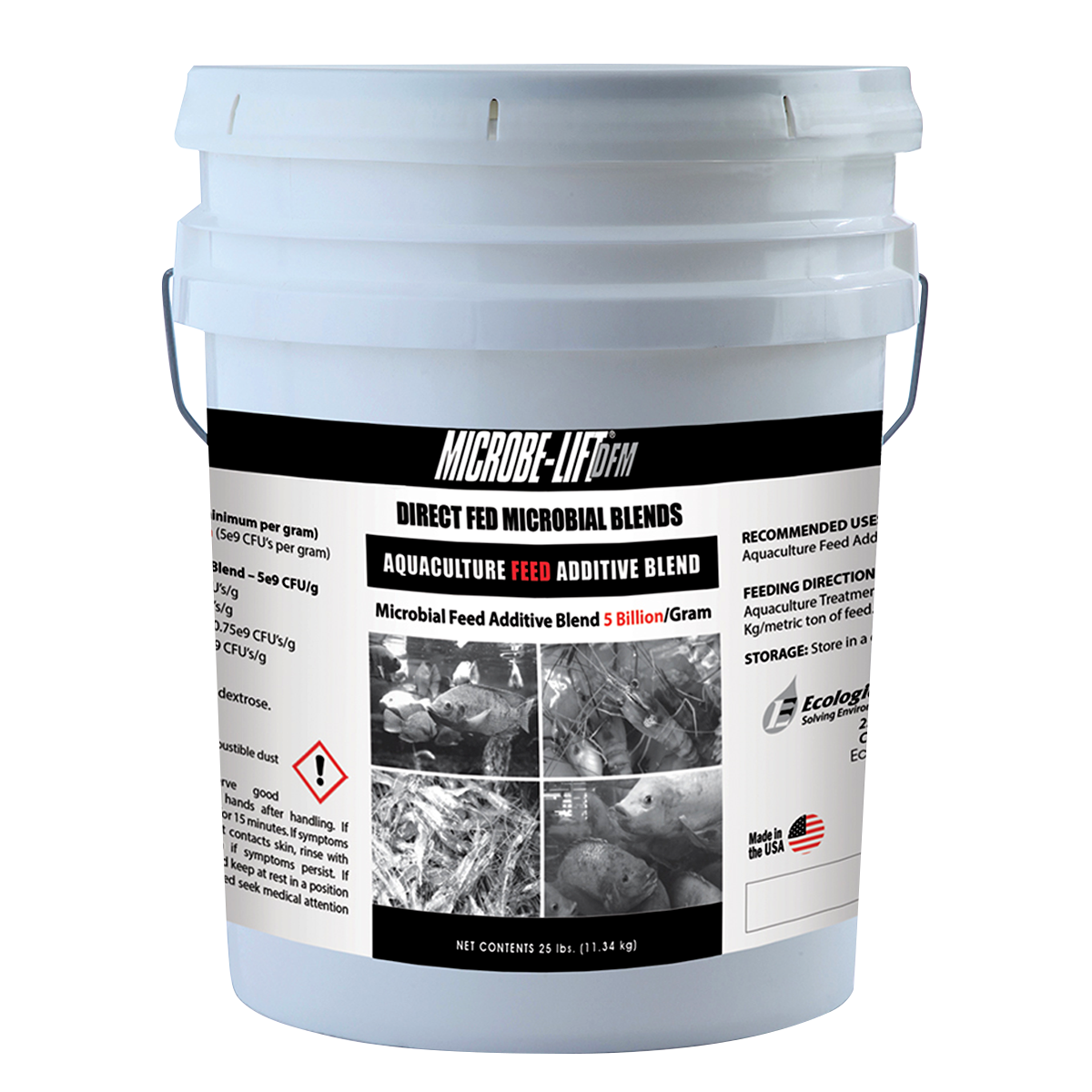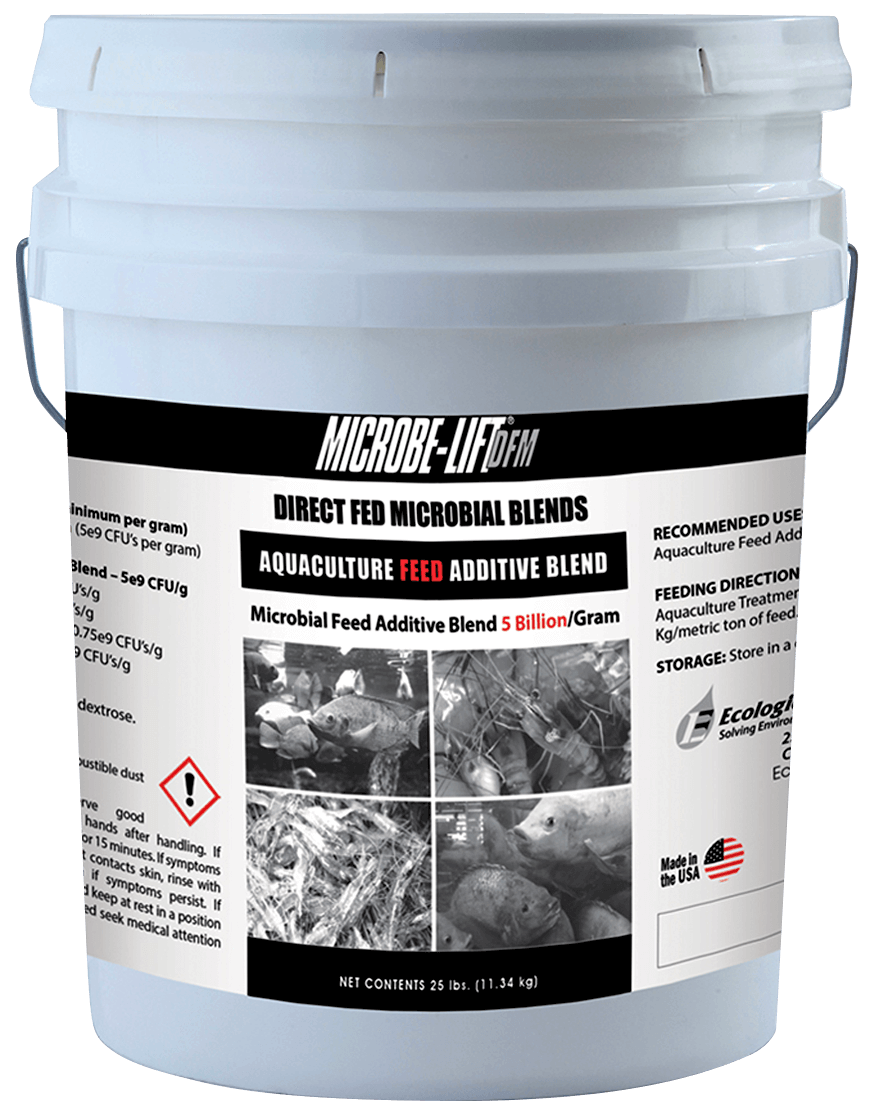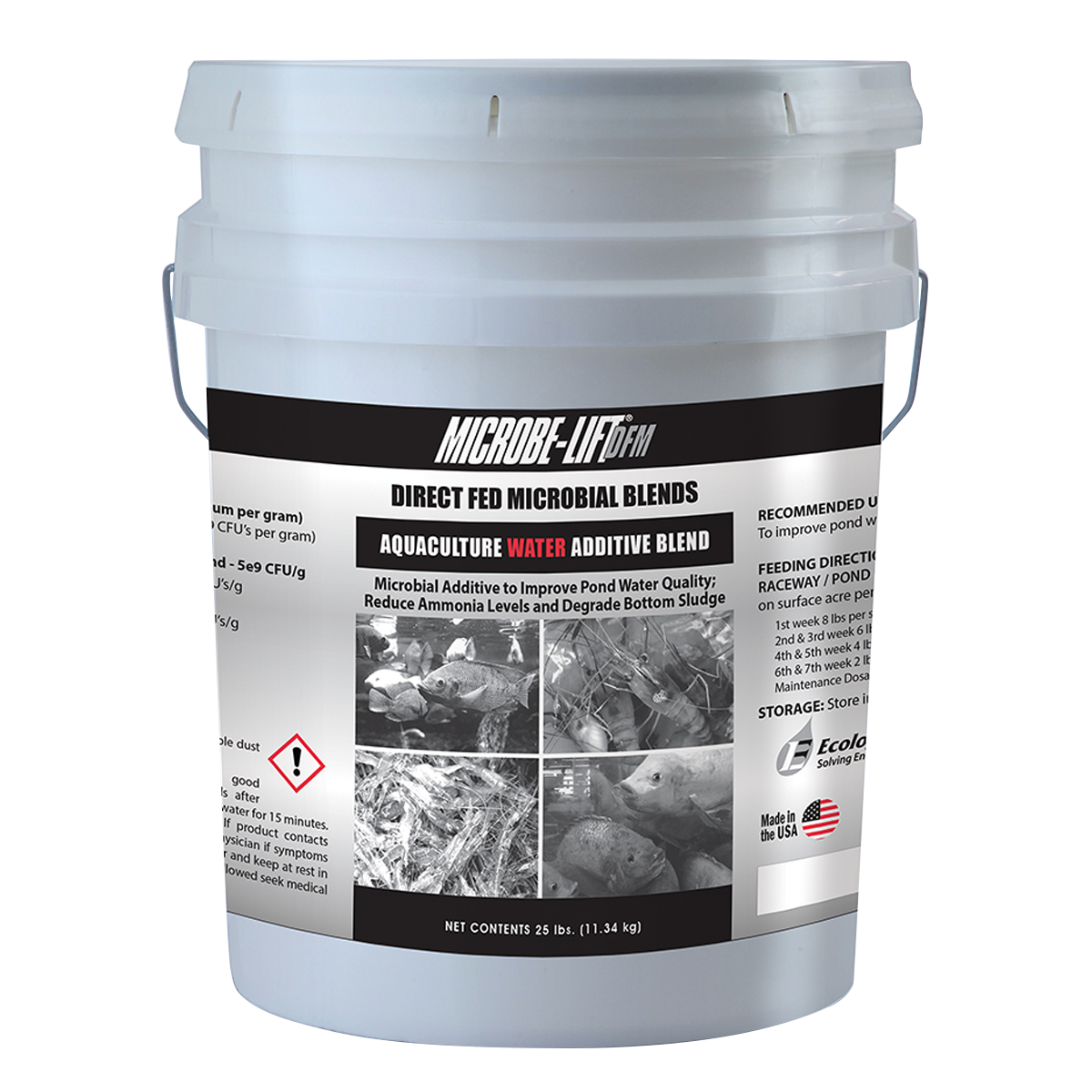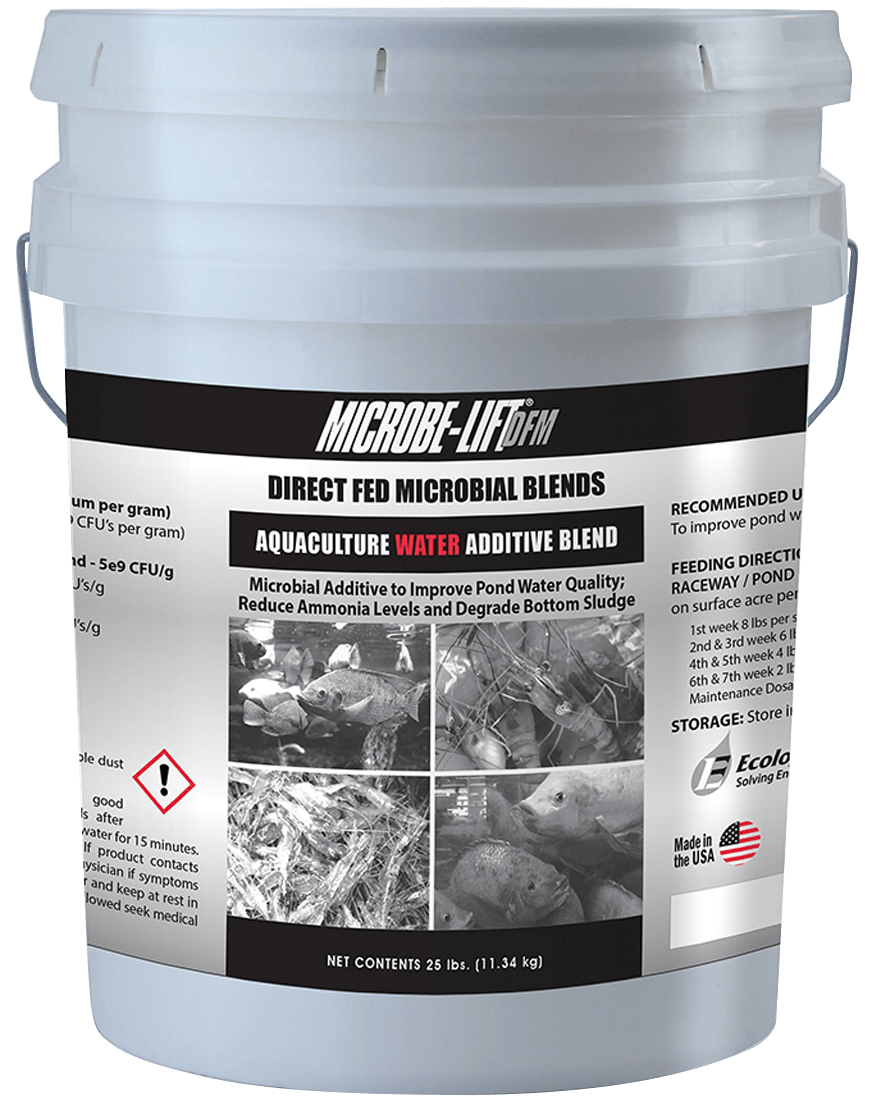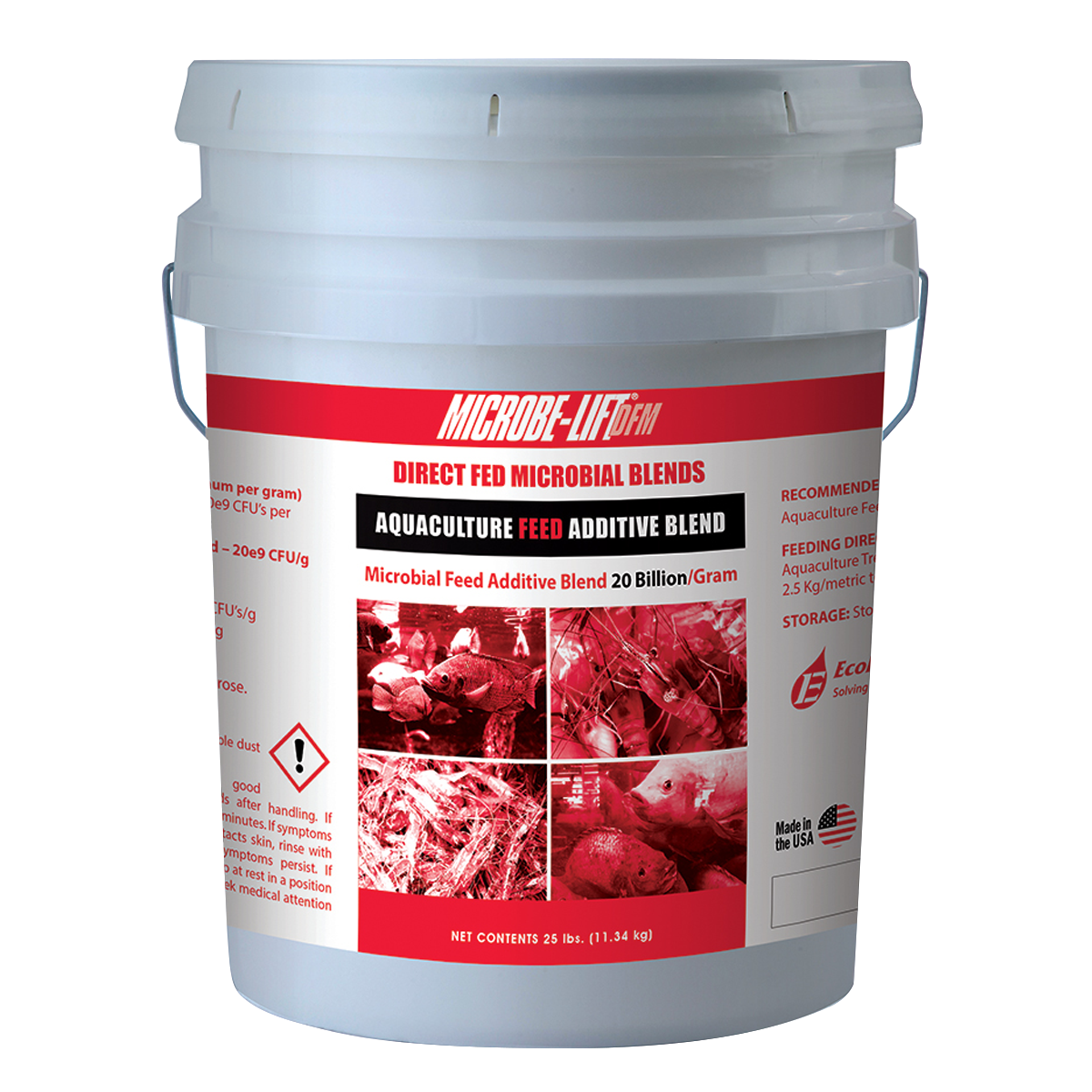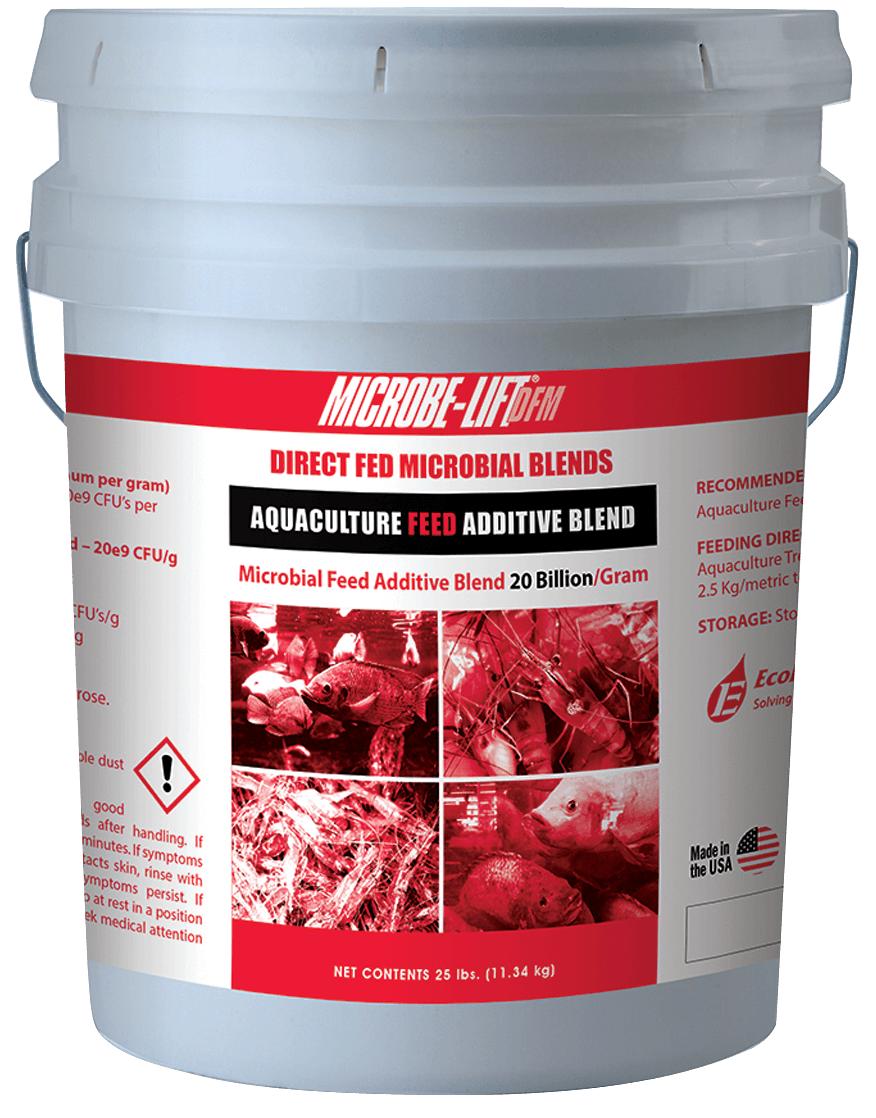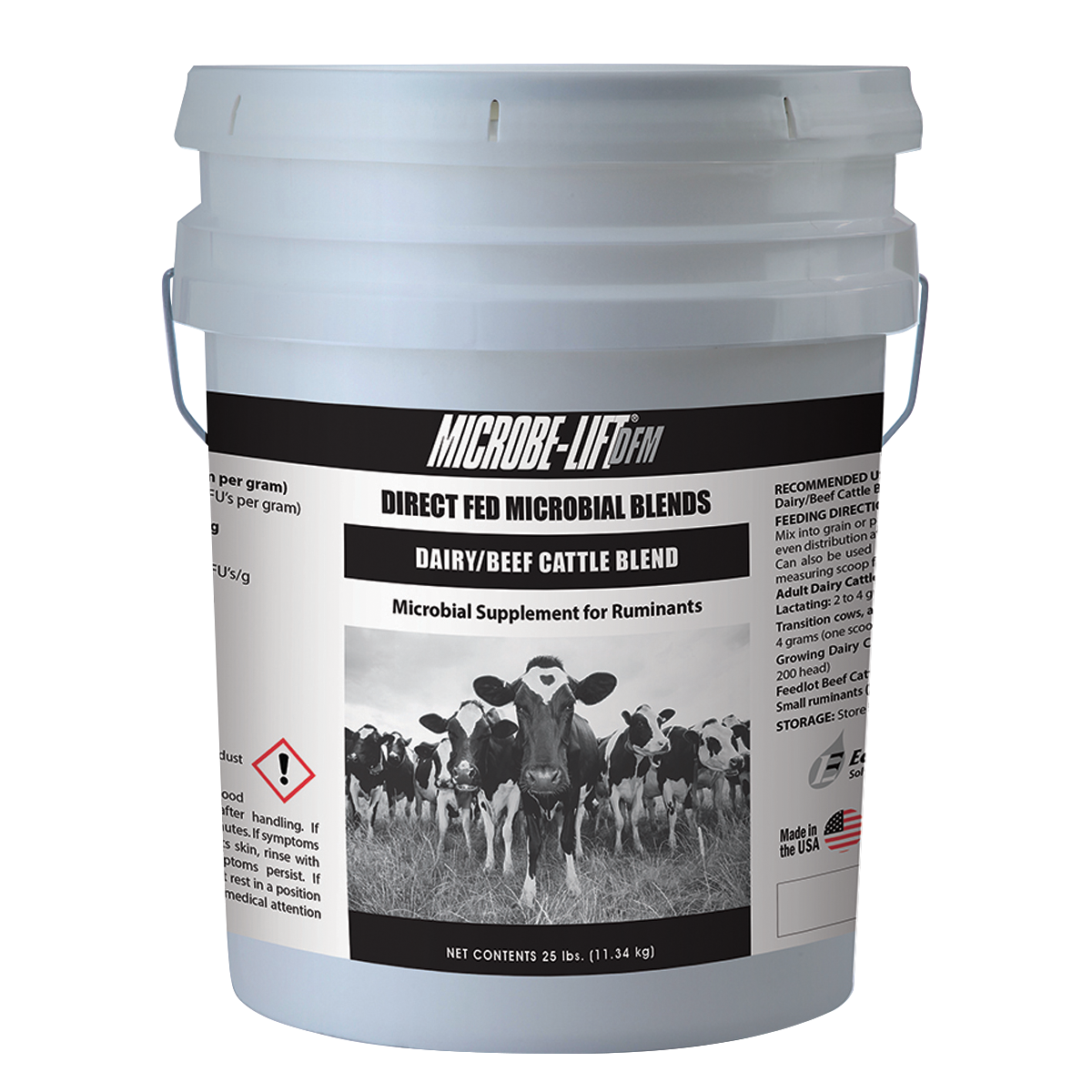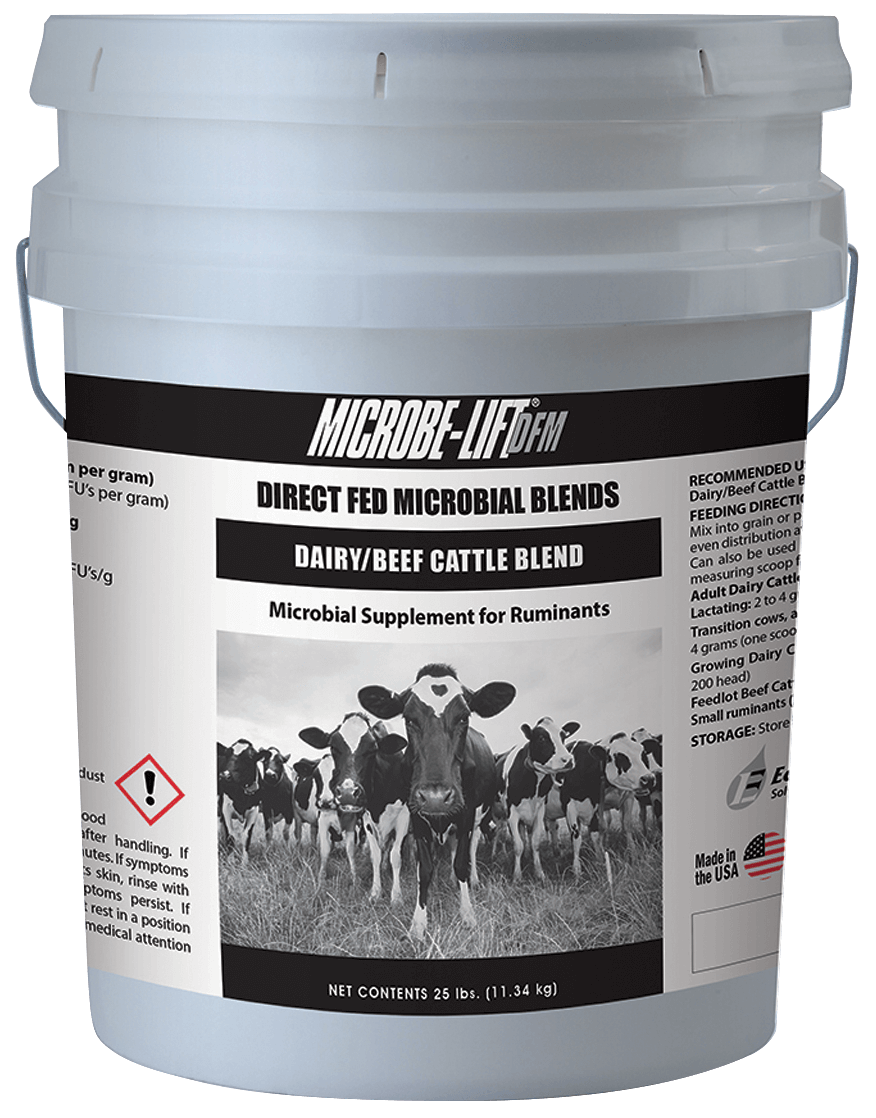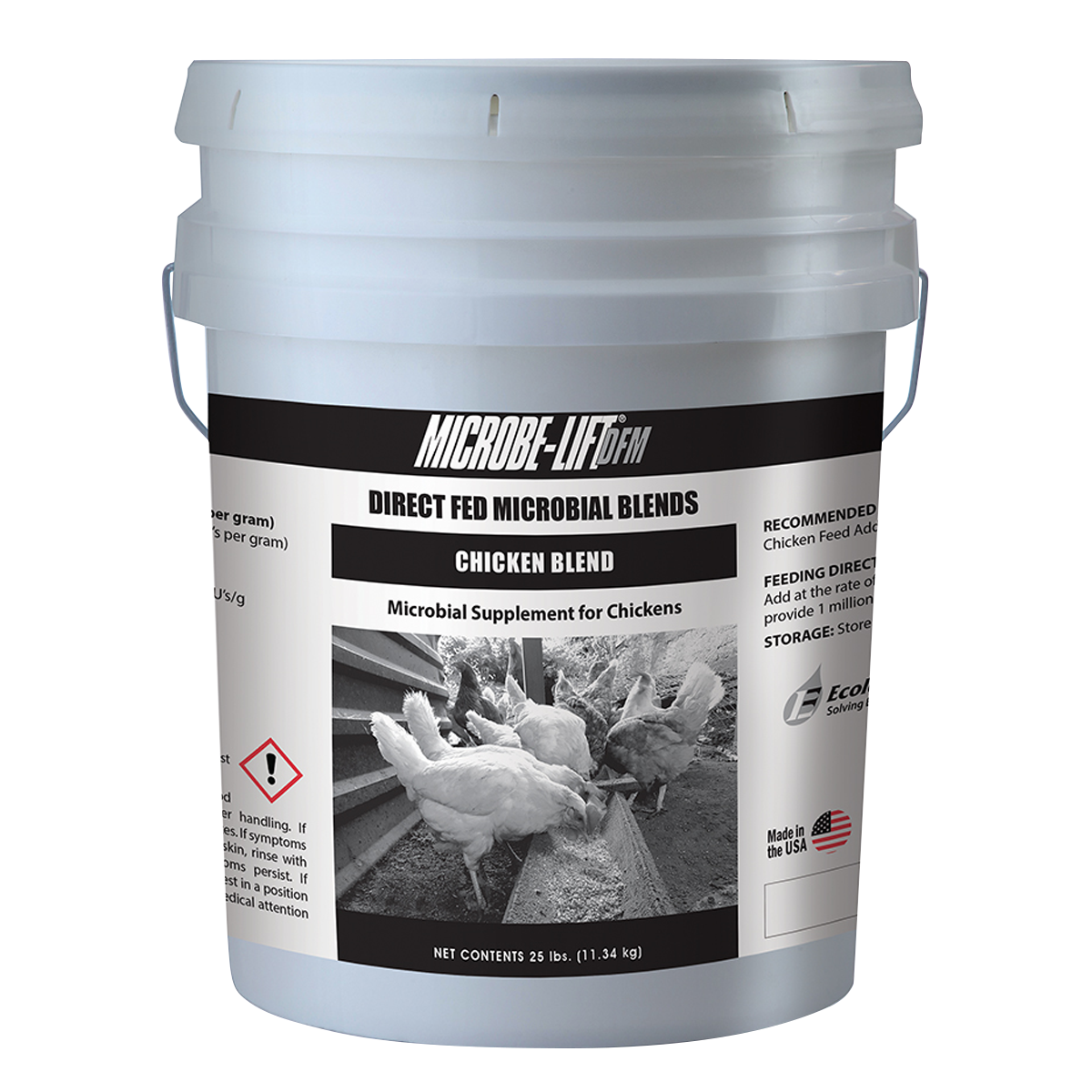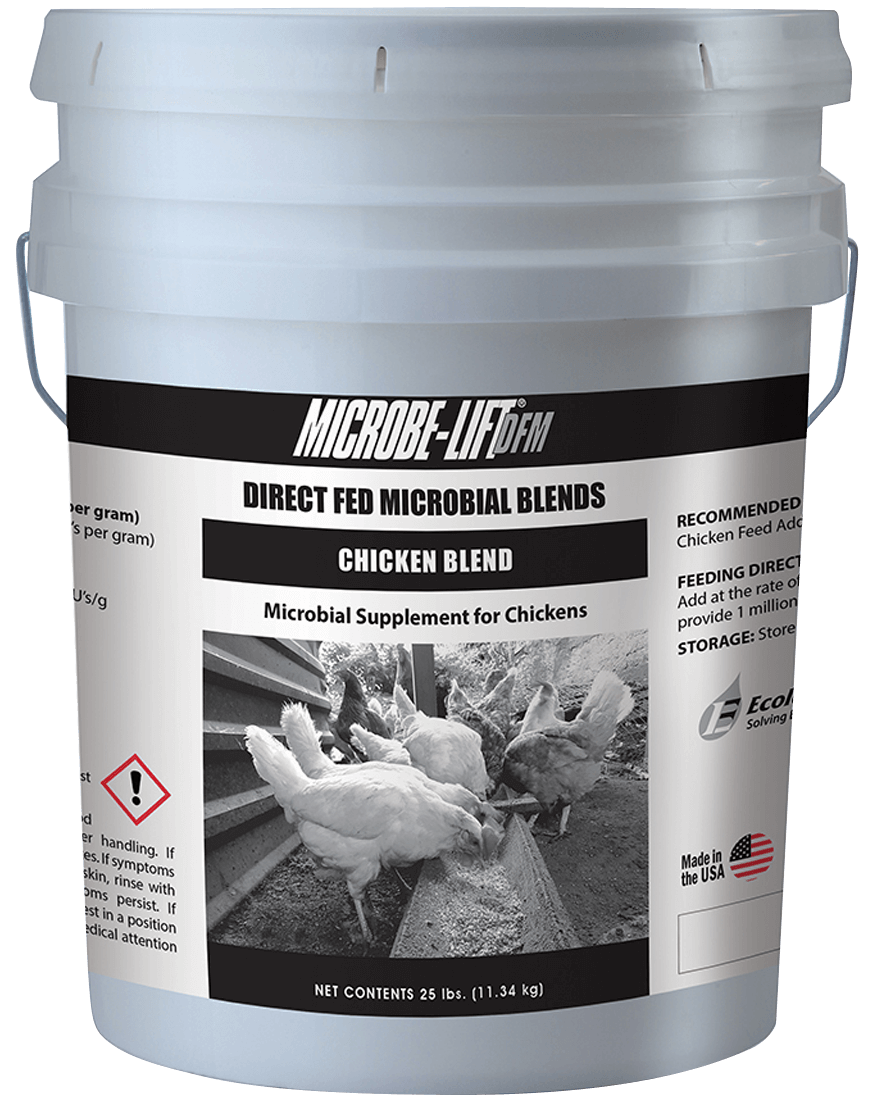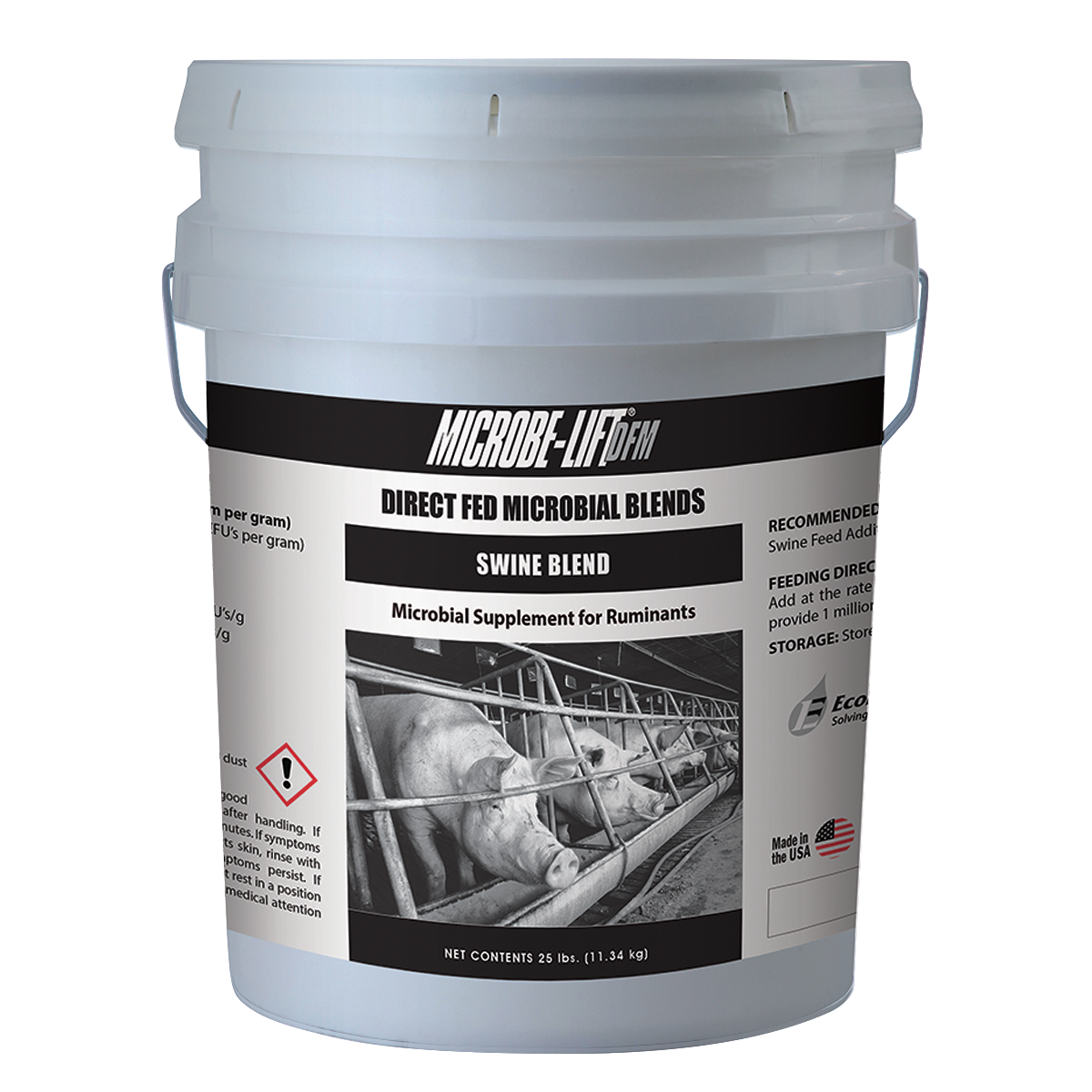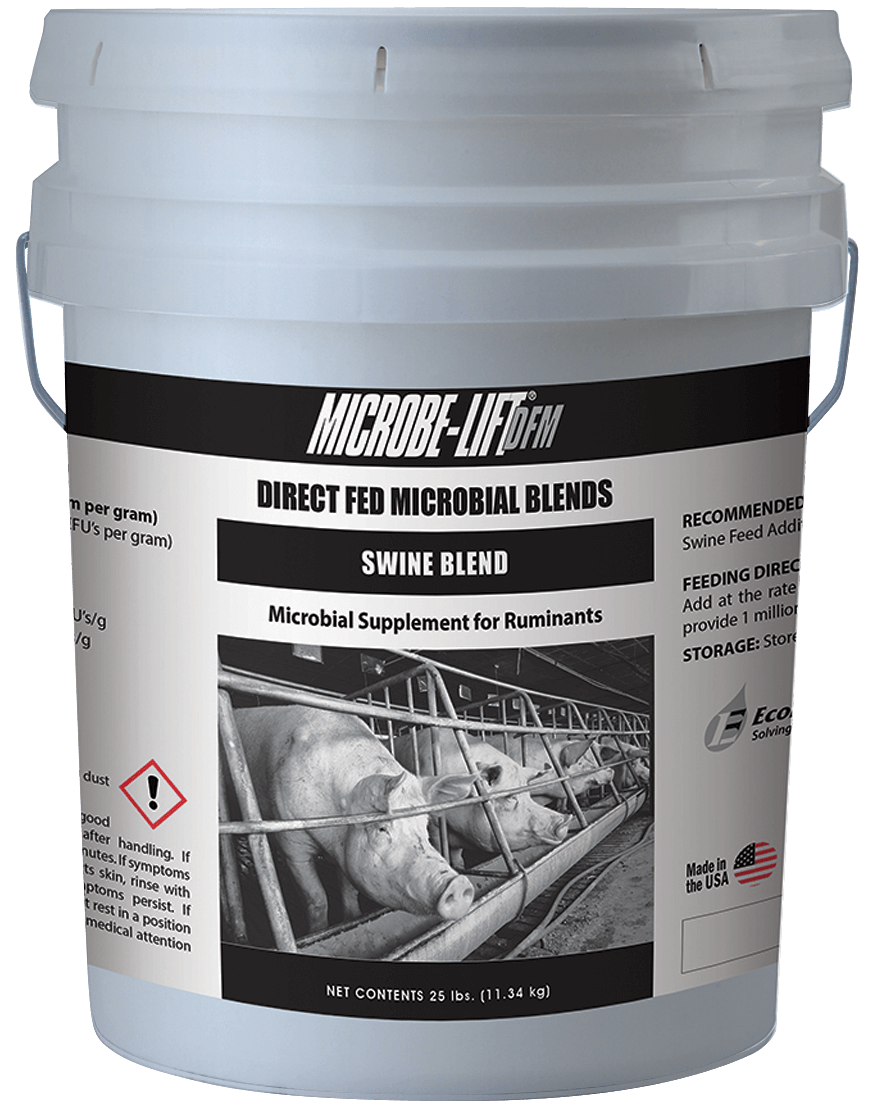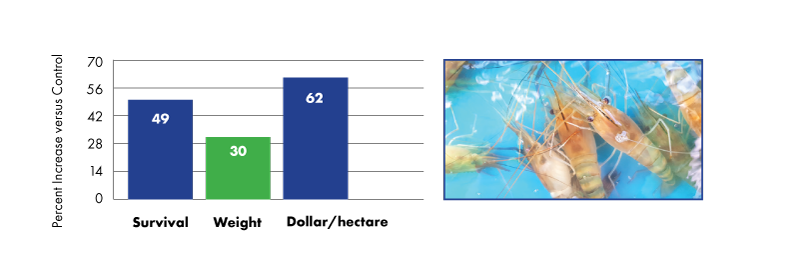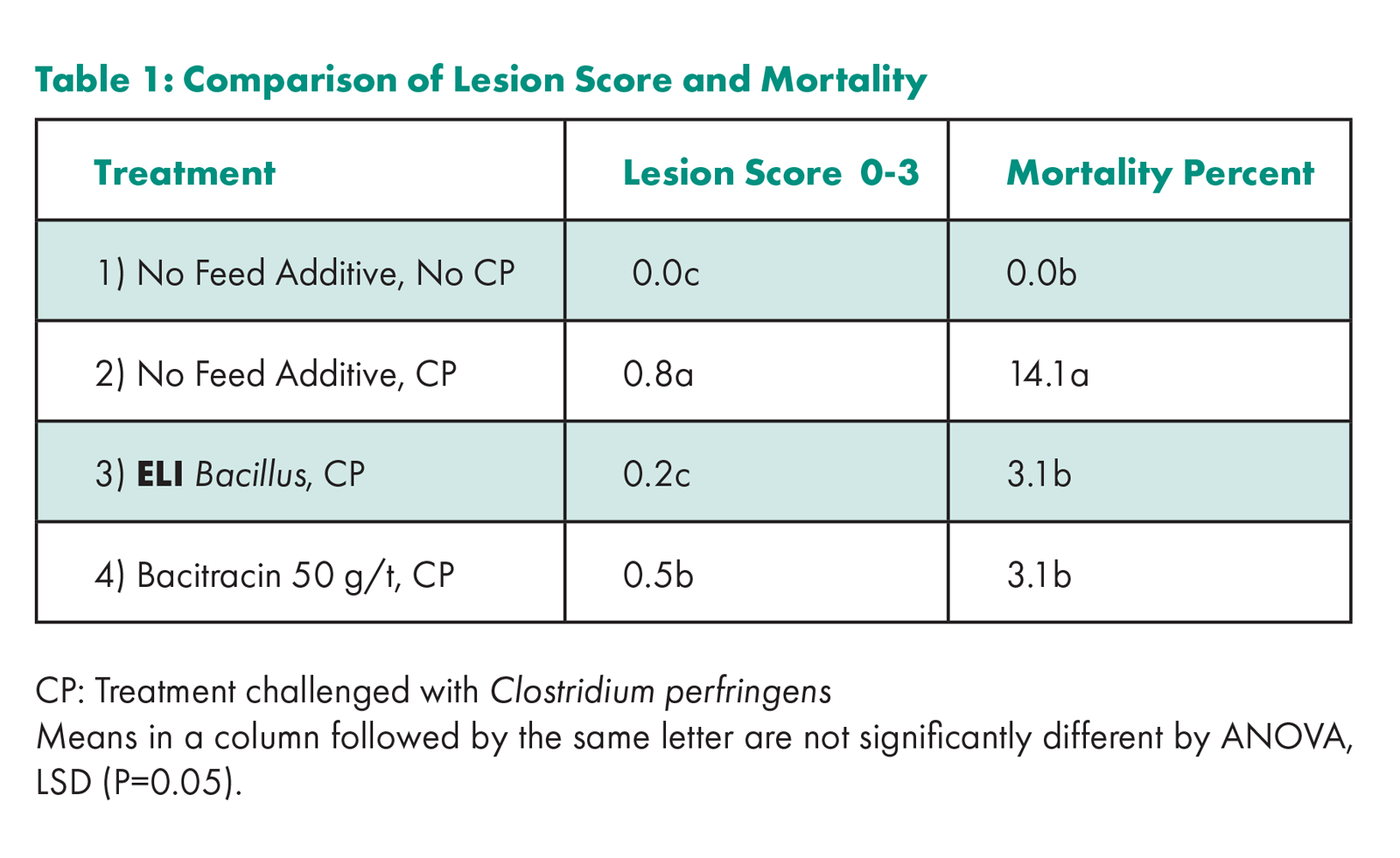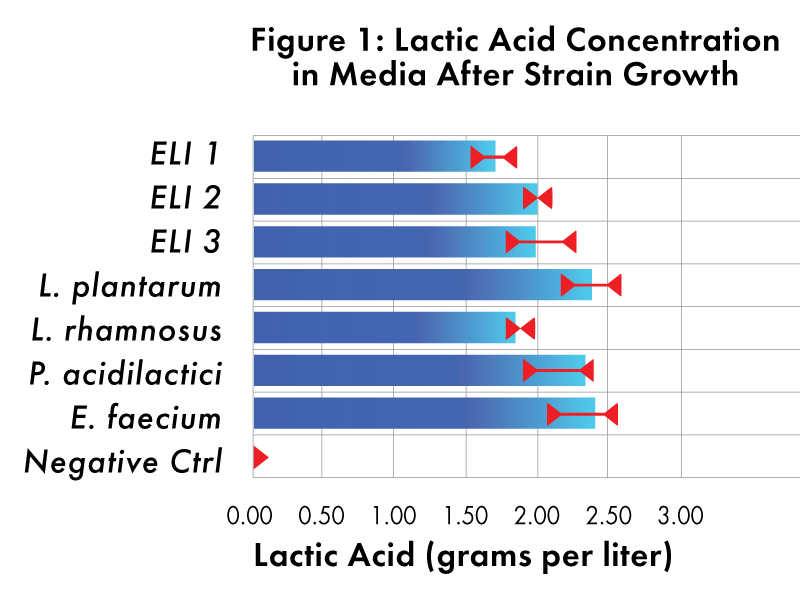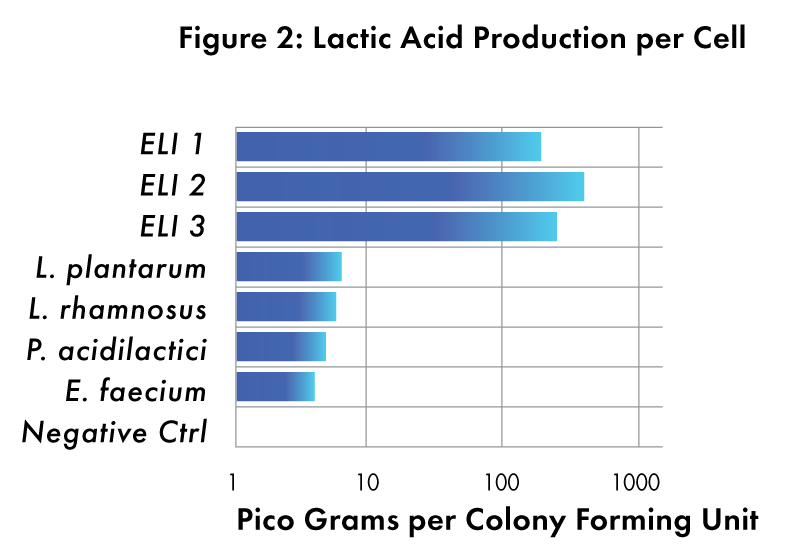By applying refined scientific methods with many years of careful bio-prospecting, Ecological Laboratories, Inc. continues to provide unique, non-engineered Bacillus cultures. Our direct-fed microbial strains all have important attributes that enhance the feed conversion rate and promote animal health. All strains used by Ecological Laboratories, Inc (ELI), in direct-fed microbial (DFM) blends are approved by the American Association of Feed Control Officials (AAFCO).
Lactic acid bacteria (LAB) have been used in animal feed because of their production of lactic acid, which is understood to have overall benefits to the animal. Agriculture producers recognize the benefits of LAB in the animal feed; however, they are also concerned with the poor shelf stability of these products. Typical LAB, such as Lactobacillus, are heat and oxygen sensitive, losing viability over time in commercial conditions. The scientists at ELI understand commonly used Bacillus strains have a distinct advantage over LAB because Bacillus are both shelf stable, and can withstand the high temperatures often used in the processing of feed.
DETERMINATION OF LACTIC ACID PRODUCTION
Figure 1 & 2 (below) demonstrates the lactic acid concentration of a subset of ELI’S Bacillus strains compared to LAB strains commonly used in industry, such as Lactobacillus plantarum, Lactobacillus rhamnosus, Pediococcus acidilactici, and Enterococcus faecium. ELI microorganisms produce a comparable level of lactic acid under these oxygen-limited conditions.
However, in Figure 2, ELI’s strains are at least an order of magnitude more efficient in lactic acid production on a per cell basis than the commonly used LAB strains.
Conclusion:
With our customer’s product formulation challenges in mind, ELI continues to use a science-based approach to bio-prospecting and screening for Bacillus strains with superior industry desired attributes. The results in this experiment show AAFCO approved Bacillus species that produce lactic acid at comparable levels as strains currently used in the industry. By incorporating ELI’S Bacillus in your DFM product, you can offer an agricultural feed ingredient with lactic acid production that also has long-term stability.

